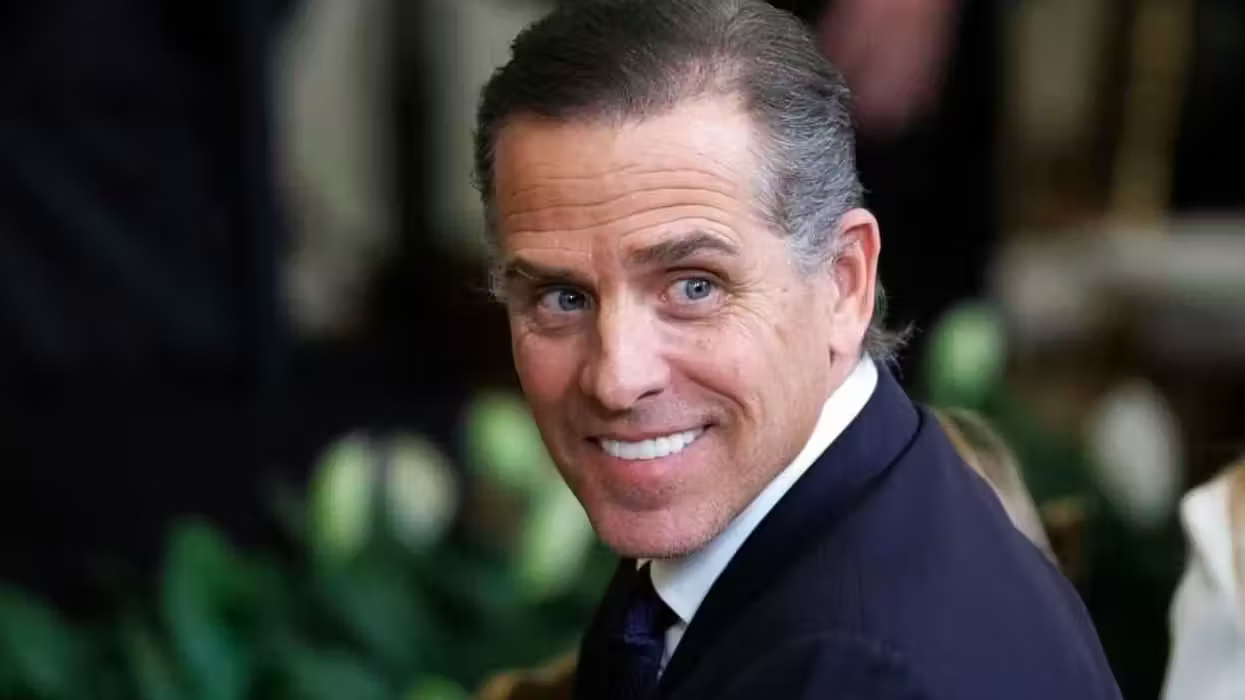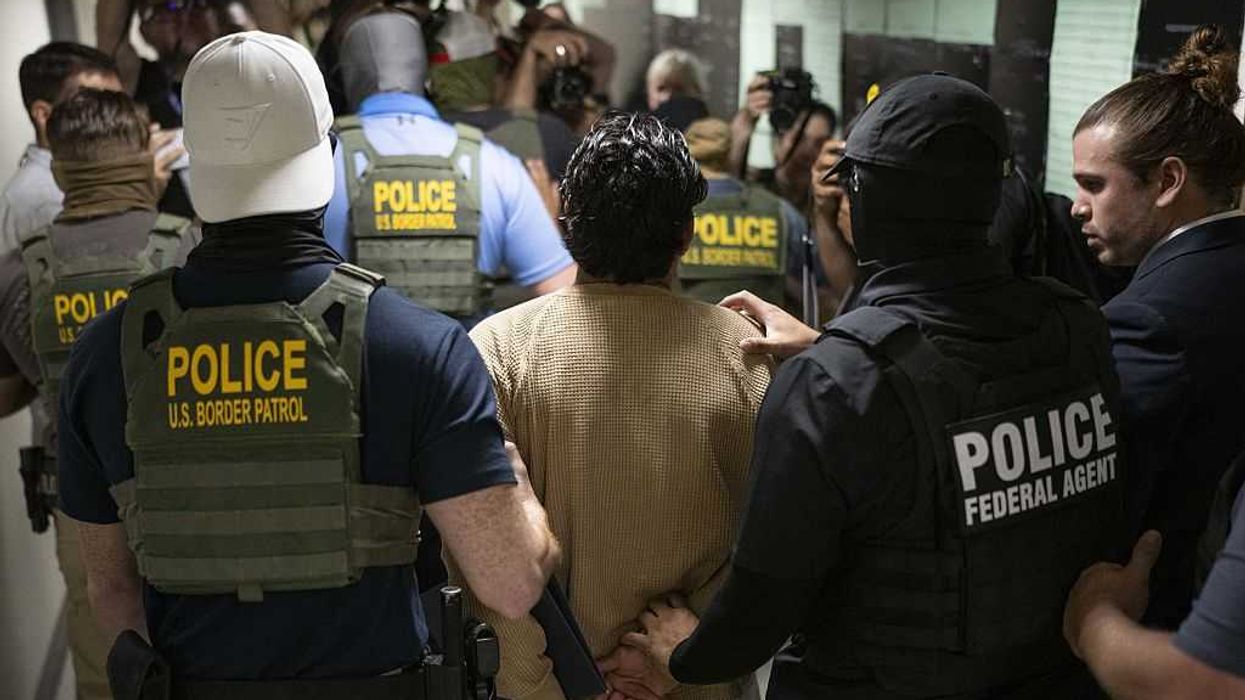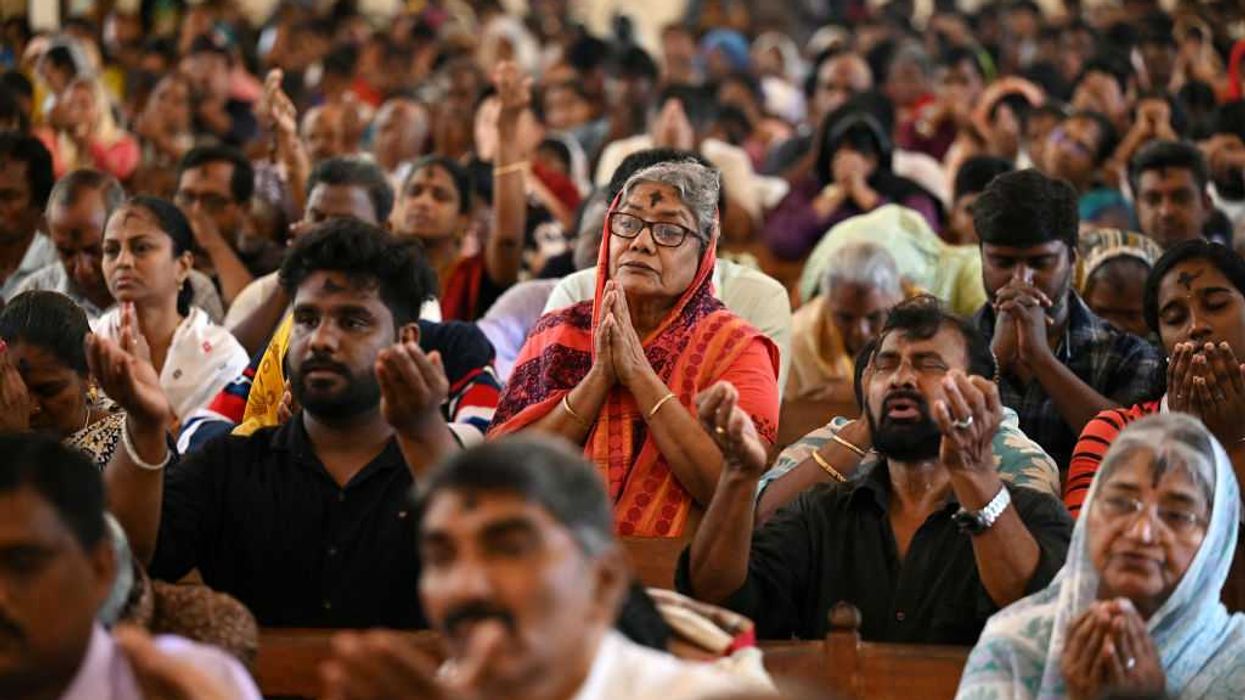SEOUL, South Korea (TheBlaze/AP) -- North Korea vowed Tuesday to cancel the 1953 cease-fire that ended the Korean War, citing a U.S.-led push for punishing U.N. sanctions over its recent nuclear test and ongoing U.S.-South Korean joint military drills.
Without elaborating, the Korean People's Army Supreme Command warned of "surgical strikes" meant to unify the divided Korean Peninsula and of an indigenous, "precision nuclear striking tool." The statement came amid reports that Washington and North Korean ally Beijing have approved a draft of a U.N. Security Council resolution calling for sanctions in response to North Korea's Feb. 12 nuclear test. The draft is expected to be circulated at the U.N. this week.
 In this undated photo released by the Korean Central News Agency and distributed Sunday, Jan. 27, 2013 in Tokyo by the Korea News Service, North Korean leader Kim Jong Un attends a consultative meeting with officials in the fields of state security and foreign affairs at undisclosed location in North Korea. Credit: AP
In this undated photo released by the Korean Central News Agency and distributed Sunday, Jan. 27, 2013 in Tokyo by the Korea News Service, North Korean leader Kim Jong Un attends a consultative meeting with officials in the fields of state security and foreign affairs at undisclosed location in North Korea. Credit: AP
Such heated military rhetoric and threats are common from North Korea as tensions rise on the Korean Peninsula, and Pyongyang's recent nuclear test and rocket launches, and the subsequent call for U.N. punishment, have increased already high animosity between the North and Washington and ally Seoul.
The United States and others worry that North Korea's third nuclear test takes it a big step closer toward its goal of having nuclear-armed missiles that can reach America, and condemn its nuclear and missile efforts as threats to regional security and a drain on the resources that could go to North Korea's largely destitute people.
North Korea says its nuclear program is a response to U.S. hostility that dates back to the 1950-53 Korean War, which ended with an armistice, not a peace treaty, leaving the Korean Peninsula still technically in a state of war.
 In this Sunday March 3, 2013, photo provided by ABC television "This Week" host George Stephanopoulos, left, interviews former NBA star Dennis Rodman, just back from a visit with North Korea's young leader Kim Jong Un, in studio in New York. Kim Jong Un doesn't really want war with the superpower, just a call from President Barack Obama to chat about their shared love of basketball, says erstwhile diplomat Rodman."He loves basketball. ... I said Obama loves basketball. Let's start there" as a way to warm up relations between U.S. and North Korea", Rodman said. Credit: AP
In this Sunday March 3, 2013, photo provided by ABC television "This Week" host George Stephanopoulos, left, interviews former NBA star Dennis Rodman, just back from a visit with North Korea's young leader Kim Jong Un, in studio in New York. Kim Jong Un doesn't really want war with the superpower, just a call from President Barack Obama to chat about their shared love of basketball, says erstwhile diplomat Rodman."He loves basketball. ... I said Obama loves basketball. Let's start there" as a way to warm up relations between U.S. and North Korea", Rodman said. Credit: AP
Even amid the tension, North Korea has welcomed high-profile visitors, including former basketball star Dennis Rodman, known for his piercings and tattoos - and his Hall of Fame career with the Detroit Pistons and Chicago Bulls.
Rodman met the North Korean leader, Kim Jong Un, called him an "awesome guy" and said Kim wanted President Barack Obama to call him (more about this here). The trip was criticized for giving the authoritarian leader a propaganda boost, but Rodman suggested "basketball diplomacy" could warm relations. Google's executive chairman, Eric Schmidt, made a four-day trip in January, but did not meet Kim.
North Korea warned in its statement that it will cancel the 60-year-old armistice agreement on March 11, when two weeks of U.S.-South Korean military drills that began earlier this month draw 10,000 South Korean and 3,500 U.S. forces. The statement called the drills a "dangerous nuclear war targeted at us."
North Korea also said it will block a communications line between it and the United States at the border village separating the two Koreas.
"We aim to launch surgical strikes at any time and any target without being bounded by the armistice accord and advance our long-cherished wish for national unification," the statement said.
North Korea lays the blame for its much-condemned nuclear weapons programs on the United States.
A rich vein of North Korean propaganda, fueled by decades-old, Cold War-era American threats, holds that the North remains at risk of an unprovoked nuclear attack. Washington and others say brinksmanship is the North's true motive for the nuclear push.
--
More Stories From Billy Hallowell:

 In this undated photo released by the Korean Central News Agency and distributed Sunday, Jan. 27, 2013 in Tokyo by the Korea News Service, North Korean leader Kim Jong Un attends a consultative meeting with officials in the fields of state security and foreign affairs at undisclosed location in North Korea.
In this undated photo released by the Korean Central News Agency and distributed Sunday, Jan. 27, 2013 in Tokyo by the Korea News Service, North Korean leader Kim Jong Un attends a consultative meeting with officials in the fields of state security and foreign affairs at undisclosed location in North Korea. 




